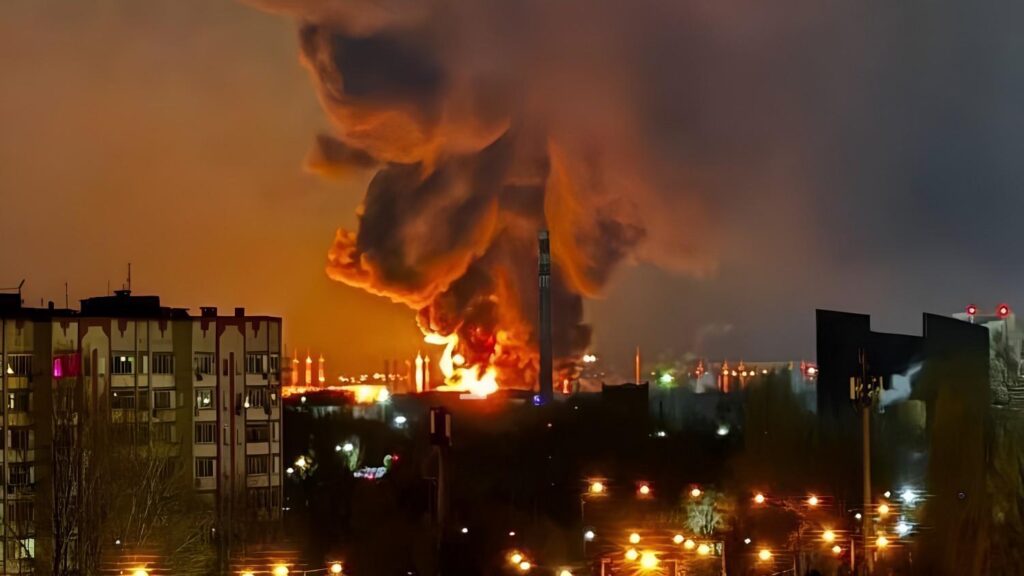In March 2025, global crude oil markets witnessed major disruptions Ukraine drone strike and after two explosive incidents in Russia and Nigeria. Oil prices spiked by $2–3 per barrel, highlighting the fragile nature of energy infrastructure in both war-torn and economically unstable regions.
Ukraine Drone Strike: Targeting Russia’s Energy Nerve
A massive Ukraine drone strike in Russia’s Krasnodar region hit a large oil depot, igniting fires and destroying vital fuel tanks. Though not officially confirmed, Ukraine is widely believed to be behind the attack, continuing its pattern of targeting Russian oil assets.
These strikes are strategic: by hitting oil depots and refineries, Ukraine aims to weaken Russia’s oil-powered economy and disrupt military logistics. Analysts also suspect Ukraine drone strike could be getting technical or intelligence support from the U.S. or NATO, though direct evidence remains elusive.
Advertisment

Sports Chest Pack with Pistol Holder Front Chest Bag for Men Chest Pouch Harness for Running, Hiking, Workouts
Nigeria’s Pipeline Explosion: Internal Threats and Neglect
Around the same time, Nigeria’s Trans-Niger pipeline—which carries nearly 450,000 barrels per day—was rocked by a devastating explosion. Unlike Ukraine’s geopolitical tactics, this incident likely stems from internal issues such as:
Oil theft by local groups
- Militant attacks, possibly from factions like the Niger Delta Avengers
- Neglected maintenance and aging infrastructure
- Nigeria has long struggled with pipeline security, where illegal tapping, sabotage, and corrosion are common.
War vs. Weakness: A Comparative Lens
| Feature | Ukraine / Russia Situation | Nigeria Situation |
|---|---|---|
| Cause | Geopolitical Conflict | Internal Stability |
| Perpetrator | Likely Ukraine | Oil thieves or militents |
| Target | Export & Millatry Logistics | Economic oil lifeline |
| Motivation | Stratigic Warfare | Profit protest or decay |
Global Energy Impact: More Than Just Isolated Incidents?
These back-to-back events expose a wider global trend—oil infrastructure is becoming a frontline target, whether through warfare tactics or economic desperation. As energy demand rises, so does the vulnerability of the systems that fuel it.
From Ukraine Drone Strike strategic drone warfare to Nigeria’s chronic oil theft, these incidents are not just blips—they’re warning signs. The world must prepare for a future where oil isn’t just a commodity—it’s a conflict zone.



